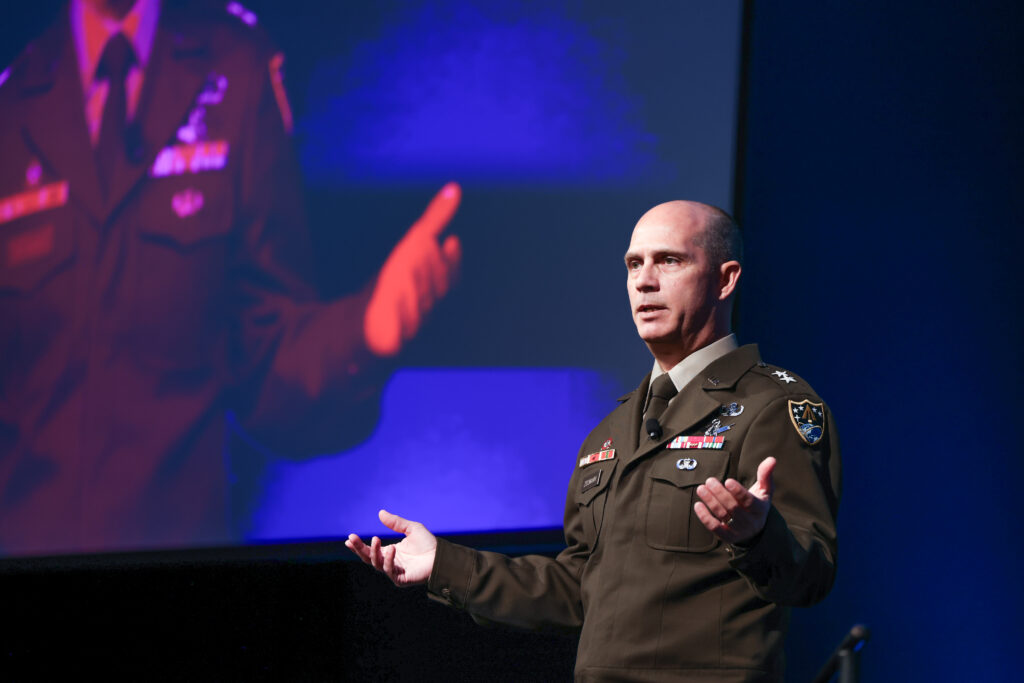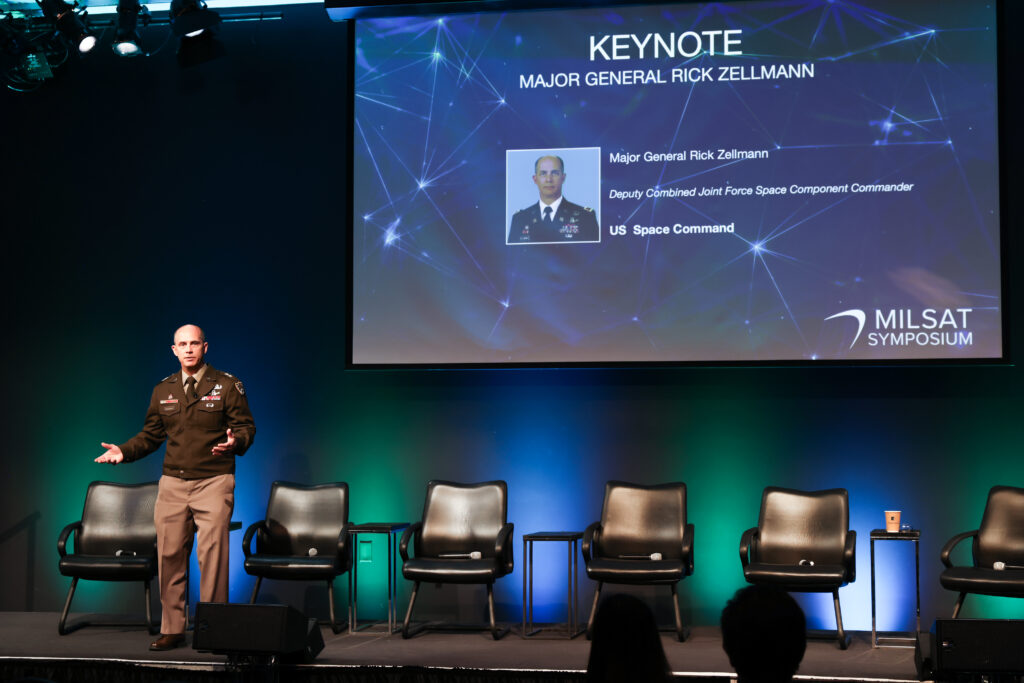By Chris Forrester

Maj Gen Rick Zellman, Deputy Combined Joint Force Space Component Commander at the US Space Command outlined for delegates how the military had transitioned from the days of the Cold War through early satellite activity and Early Warning satellites and to today’s position where space was tied to the strategic demands of war and protected by our nuclear deterrents.
Maj Gen Zellman was delivering a fascinating Keynote for delegates to the Silicon Valley Space Week and its MilSat Symposium strand on October 24, and said that cash had being invested over the years to ensure that space and satellite was wholly enabled via its tactical embracing of space.
The Russians today have tried to take away our advantage by interfering and countering all that we have and attempting to take our military back to the industrial age. The Chinese have really raised their game and developed sophisticated solutions. “So, what do we do?”
“We have to be more resilient. Our systems were proliferated, and we have what we have! The first move is to work with our allies and working closely with them is a clear aim. On the commercial side we have invested in a group of like-minded companies but what we are doing is sharing some information on what we see as the threats. It is a good model. Then there’s the Joint Commercial Operation, with 3 locations (Australia, and at NATO and at Colorado Springs) and the data they receive comes from their commercial partners, and it is unclassified data and can be shared between us all.”
The other way to work with allies is to share our warfighting thoughts but there are limitations unless it is all unclassified.

Maj Gen Zellman explained how wide-ranging the Space Command’s ambitions were especially when dealing with a growing number of allied friends, but how inevitably challenging it was when dealing with classified information.
He also addressed extremely up-to-date events from new threats from within the Middle East. He said Space Command’s first job is to warn about incoming missiles and on April 13, and when Israel was cautioned about incoming missiles. The matter of fact was that Israel was shooting down missiles, as were the US as were other allies. “There was no duplication. Everyone understood what they had to do. And when retaliation happened again there was no duplication. Everyone had access to the same core satellite data and training was superb, so that there was no duplication.”
He ended by saying how enthusiastic he was about logistics in space, and in particular refuelling satellites. “We wouldn’t send out a tank with just 500 gallons of fuel. We would have a back-up of fuel. We want to do this in Geostationary.”
